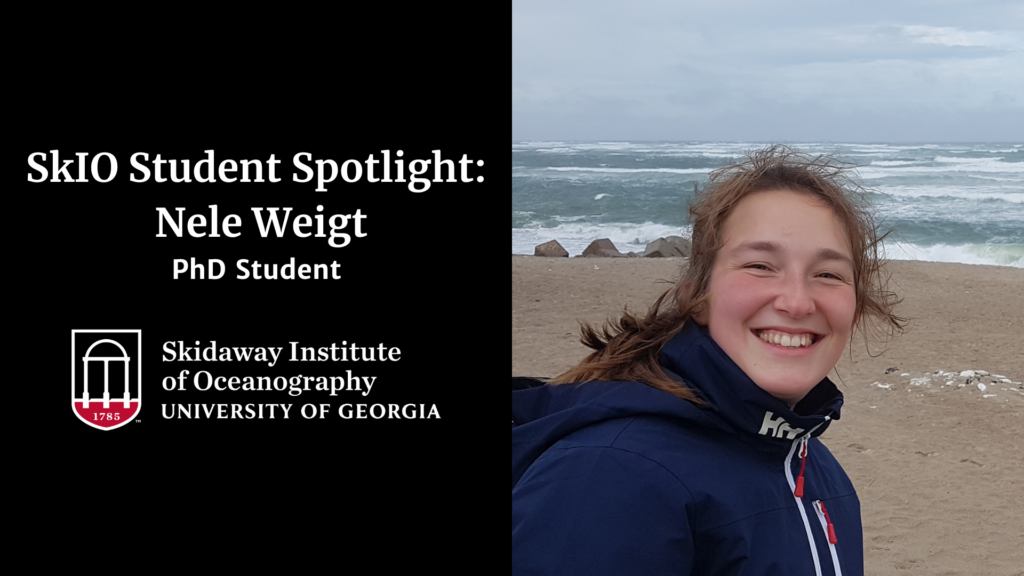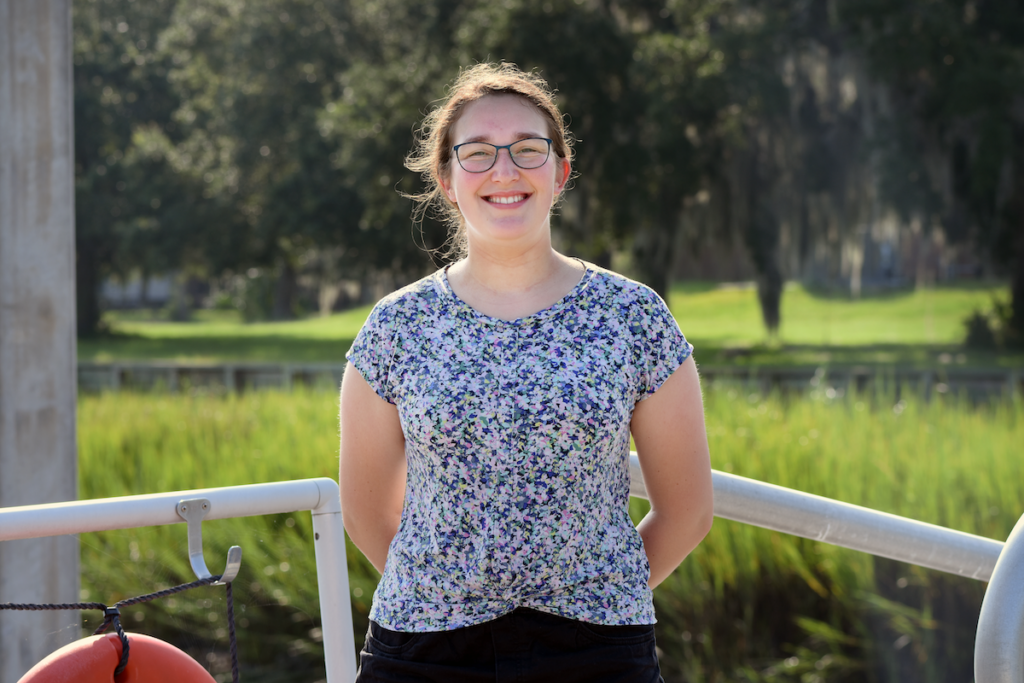
Nele Weigt, originally from Germany, is a first-year doctoral student working in faculty member Adam Greer’s lab at the University of Georgia Skidaway Institute of Oceanography (SkIO). Weigt received her bachelor’s degree in biology at the Christian-Albrecht University of Kiel and her master’s degree in biological oceanography at the GEOMAR Helmholtz Centre for Ocean Research Kiel. She is currently working on SkIO’s DolLAYER project, which focuses on better understanding vital ocean shelf food webs.
SkIO: What inspired your love of oceanography and, more specifically, your track of study?
Nele Weigt (NW): My fascination with ocean research started at a very young age, when my parents took me to a marine research station at the Baltic Sea. Ever since then, I spent as much time by the water as I could. To test if my enthusiasm would persist after high school, I worked as a federal volunteer in the Wadden Sea National Park for a year, before starting my biology studies in Kiel, with the goal of attending the master’s program at GEOMAR to study biological oceanography. During my bachelor’s, I started working as a student assistant at GEOMAR, where I was given the opportunity to gather insight into the fascinating world of zooplankton research. I kept pursuing zooplankton research from different angles throughout my studies at GEOMAR, and it has now led me here (to SkIO).
SkIO: Why did you choose UGA/SkIO?
NW: The work on zooplankton ecology, especially utilizing in-situ imaging, is very exciting to me. After another PhD student made me aware of the research done here, and a bit of Googling, I came across the listing for the PhD position with the Greer Lab and applied.

SkIO: Where do you see yourself in 5-10 years?
NW: After completing the PhD program, I want to stay in academia and pursue postdoctoral research positions.
SkIO: What do you do for fun, outside of your work/studies?
NW: Well, I just moved across the Atlantic and am still acclimating, so I spent a lot of time setting up my apartment and exploring the city. But I found a very nice book club, and I am planning on joining a sports team soon.
SkIO: What advice would you give a high school or undergraduate student interested in a similar track? How can they get to where you are?
NW: If you found a topic that you are interested in researching, don’t hesitate to reach out to more experienced researchers. In my experience, most people are happy to talk about their research and give advice about how to succeed in their field, especially when they can see that you are genuinely interested.
About SkIO
The UGA Skidaway Institute of Oceanography (SkIO) is a multidisciplinary research and training institution located on Skidaway Island near Savannah, Georgia. The Institute was founded in 1967 with a mission to conduct research in all fields of oceanography. In 2013, SkIO was merged with the University of Georgia. The campus serves as a gateway to coastal and marine environments for programs throughout the University System. The Institute’s primary goals are to further the understanding of marine and environmental processes, conduct leading-edge research on coastal and marine systems, and train tomorrow’s scientists. For more information, visit www.skio.uga.edu.


